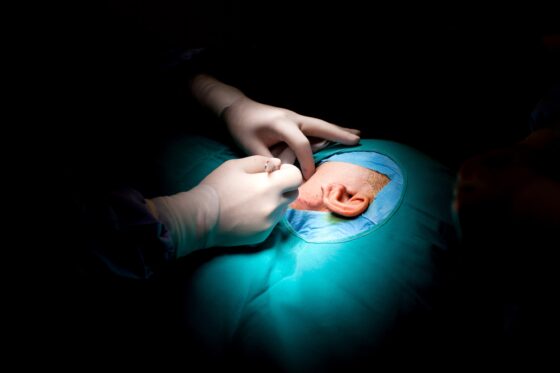
In the United States, a 20-year-old woman with an ear defect received a transplant designed using human cells and a 3D printer. This world first helps people with microtia, a congenital defect of the outer ear. In the future, this technology may expand to other therapeutic areas.
On June 2, the team of Arturo Bonilla, founder and director of the Microtia-Congenital Ear Deformity Institute in the United States, performed an implant transplant of a human ear made using a 3D printer. Called AuriNovo, this implant was developed by 3DBio Therapeutics, a biotechnology company specializing in regenerative medicine.
This implant is designed to provide an alternative to people suffering from microtia, “a rare birth defect in which one or both outer ears are missing or underdeveloped”the company said in a statement. In Europe, this anomaly would affect 15 of the approximately 100,000 births.
To make the prosthesis given to the 20-year-old patient, the specialists took the patient’s cartilage cells, cultured them in the lab, and mixed them with collagen hydrogel. They then 3D printed the result in the shape of the “healthy” ear.
An implant still in the testing phase
This surgery could become a less invasive alternative to the surgery usually offered to people with microtia. “I hope that one day AuriNovo will become the standard of care to replace current surgical methods of ear reconstruction that require the removal of costal cartilage or the use of porous polyethylene (PPE) implants”explains Arturo Bonilla.
With these technological advancements, the ear should follow the growth and evolution of the transplanted person, as the founder of the Microtia-Congenital Ear Deformity Institute points out. “We also expect that this will result in a more flexible ear than reconstruction with an EPI implant”†
This surgery was performed as part of a five-year clinical trial in two US states, California and Texas. A total of eleven people aged 6 to 25 with microtia will receive an implant.
This clinical trial could also make it possible to extend this new technology to other therapeutic areas. “Our first indications are focused on cartilage in the areas of reconstruction and orthopedics, including the treatment of complex nasal deformities and spinal degeneration”explains Daniel Cohen, founder and CEO of 3DBio Thrapeutics.
ETX Daily Up